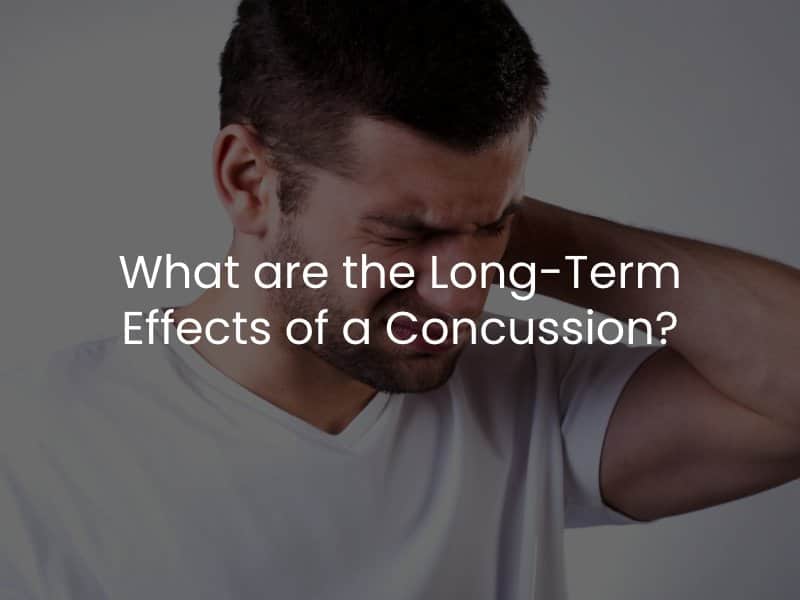What are the Long-Term Effects of a Concussion?
Concussions are caused by individuals sustaining a bump or blow to the head or body, and they are considered mild traumatic brain injuries. Most individuals make full recoveries from a concussion after a week or two of rest, but there are times when long-term symptoms occur. Here, our Sacramento brain injury attorneys want to discuss the possible long-term effects of a concussion as well as the cumulative nature of these injuries.

Typical Concussion Treatments
Information available from the Mayo Clinic shows that there are several treatments that can help the process of healing after a concussion occurs. If you have sustained a concussion, we encourage you to speak to your medical professional about treatments specific to your particular case.
Generally, doctors will recommend that a concussion victim rest during the first few days after a concussion. This includes rest from physical and mental activity.
Physical rest includes limiting the amount of movement a person undergoes in the days that follow the concussion. Additionally, rest includes limiting activities that require mental concentration or thinking for the first few days following the concussion. Included in this mental rest are activities such as video games, watching TV, reading, scrolling social media, using a computer, and doing schoolwork. Any of these activities could worsen concussion symptoms.
After a period of rest, medical professionals will usually recommend gradually increasing daily activities and screen time if individuals can tolerate them without triggering concussion symptoms. Light exercise and physical activity may be tolerated after a few days of rest. However, any high-impact activities should be avoided until a person has fully recovered.
Long-Term Symptoms of Concussions
Unfortunately, even after following a medical professional’s advice, individuals may sustain long-term concussion symptoms. According to the Mayo Clinic, individuals could suffer from post-concussive symptoms, often referred to as post-concussion syndrome. These symptoms could last weeks or months and could include the following:
- Headaches
- Fatigue
- Dizziness
- Anxiety
- Irritability
- Problems falling asleep or sleeping too much
- Ringing in the ears (tinnitus)
- Blurry vision
- Sensitivity to light or sound
Individuals who continue to experience concussion symptoms must be under the care of a doctor. A medical professional will want to conduct frequent checks in order to ensure a patient is progressing favorably towards recovery.
Medical providers will likely ask questions about symptoms and perform tests to see if individuals have any long-term problems with their memory, concentration, problem-solving, and learning. These are called neuropsychological or neurocognitive tests that can help identify the long-term effects of concussions or mild traumatic brain injuries.
Cumulative Effects of Concussions
According to the Centers for Disease Control and Prevention (CDC), an individual with a history of repeated concussions or mild traumatic brain injuries may experience longer recovery times and more severe symptoms. This is a particular problem for individuals who participate in high-risk activities or work in high-risk industries. The issue of repeated concussions has become a mainstream issue with the rise in severe brain injuries related to former pro football players.
The CDC states that individuals who sustain repeated concussions could have ongoing problems with memory, headaches, and concentration, as well as physical issues such as maintaining balance.